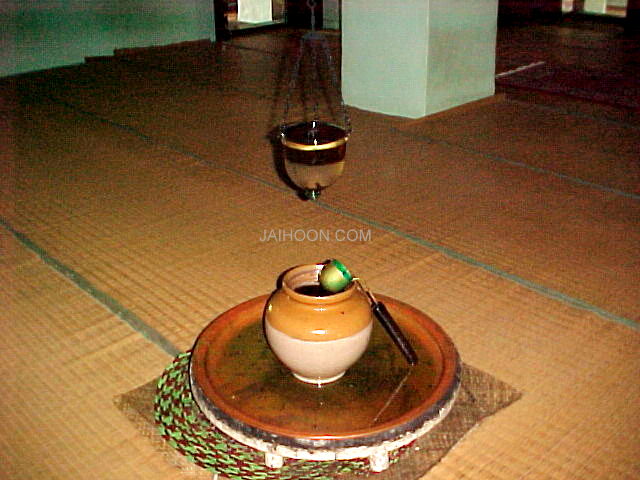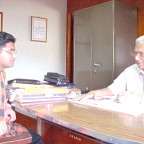Introduction
Sheikh Zainudhin Makhdum I, son of Ahmed bin Ma’bari, was born in 872 A.H at Cochin. He settled at Ponnani and being a master of Arabic language, he had several literary works to his credit including Murshid, Adkiya and Shubul Iman.
He had also written a treatise called ‘Tahrees Ahlil Imani Ala Jihadi Abdatisuul Bani’ appealing the Keralites and other Muslim nations to fight the Portuguese invasion of India.
He also established the renowned Ponnani Juma’ Masjid. He was a Sufi saint, a patriot and a great scholar especially of the Hadith literature. The ruler used to pay high respect for this saint.
After his death in 928 A.H., Sheikh Zainudhin Makhdum II (of Fathul Mu’een and Thuhfathul Mujahideen fame) held the reigns of the religious school of Ponnani Madrasa. At his hands, the religious institutions advanced in depth and height. The Ponnani Madrasa produced eminent
scholars and saints including Umar Qazi and Kunhai Musliyar.
Why Thuhfathul Mujahideen
“The natives of Malabar are a noble people. They did not embrace Islam with any kind of force or compulsion. Rather, by realizing the greatness of religion in its true sense. The Muslims never had to face any competition from the local king. The kings continued to rule remaining
loyal to their traditional beliefs.

The Muslims continued to live peacefully with the Mercy of Almighty. But this condition did not prevail for long. When they became ungrateful to the blessings of Almighty and began to indulge in sinful ways, God sent the barbaric Portuguese to overpower them.
The European colonists arrived at Malabar to let loose their series of crimes against the natives. They began to attack the Muslim populated areas.
There is no limit for the crimes they committed. When this stage lasted for more than 80 years, the Muslims were weakened and fell into a disgraced condition. Those Muslim rulers in other parts of the world, with more powerful army and financial superiority, never bothered to
help the Malabar Muslims (Except for a few). They were more interested in worldly prosperity than religious duties and therefore could not come forward for Jihad.
I am writing this book at such a point of time. It is the individual duty of every Muslim to fight the invaders of his country by the Portuguese. They have killed many. It is impossible to estimate the number of prisoners they have captured. They converted many people forcefully. They kidnapped many women and impregnated them to produce Christian children.”
On prosperity of King Samudiri
The rulers of Malabar are Hindus. There are both strong and weak ones among them. But the strong one will not attack weak one. The ruler of areas from Kollam to Kanyakumari was the most powerful. After that the ruler of areas like Ezhimala, Shrikandapuram, Kannur, Edakkad,
Dharmmadam. But Samudiri had more fame and power. That was because he was in good terms with the Muslims. He used to maintain very friendly relations with the Muslims, especially the foreign Muslims.
But the Hindus believed that it was due to the blessings of the sword given by the earlier king to his son.
They claimed that this was one of the swords kept in Samudiri’s palace. They pay high respect for the sword. When Samudiri leaves for any important meeting or any battle, a Muslim guard would walk in the front holding the sword.
King Samudiri
If for some reason the Samudiri clashes with any other kingdoms, the King of the defeated kingdom usually gives wealth or even his kingdom. Even if he can, the Samudiri would never forcefully capture anything. This is because the natives of Malabar continue to observe their customs and traditions. Very rarely were the traditions broken. But kings other than Samudiri would either destroy the lost kingdom or murder its people.
On Communal Harmony
The prosperity enjoyed by Muslims was due to the tolerance shown by the king and his men. They were not mere Hindus, rather righteous Hindus who sincerely observed their religious duties. The Muslims were hardly a one-tenth tiny minority in the population. Yet they never behaved
insolently towards the Muslims.
Calicut was an important port since time immemorial. But since the Portuguese blocked the free trade, the historic city was ruined.
Muslims do not have an authoritative leader or a king. Their rulers were Hindus. They ruled according to the rules of their religion.
When any fee was to be collected from any Muslim, it would be collected according to their law. However, the Muslims enjoyed great respect among Hindus. An important cause for this was that the progress of the kingdom was undertaken at the Muslim hands.
The Hindu King made facilities for the celebration of Eid and performing the Friday prayers. The Qazis (judges) and Muezzins (one who sounds call to prayer) were paid from the government treasury. The administration made it possible for the observance of religious duties among the
Muslims.
The government never allowed any Muslims to miss his Juma’ prayer. It is a usual practice to punish those who miss the Friday prayer and levy taxes on them.
If any Muslim was sentenced to death, he would be killed after consulting Muslim religious leaders and the dead body would be returned to the Muslims for burial.
They never entered Muslim homes without permission. Even if a criminal is found hiding in the house, he will not be caught forcefully. They would rather request the Muslim house owner to starve him or by any other means take him outside.
If any Hindu embraces Islam, the others will not be against him or will not harm him. Rather, if he’d belonged to a lower caste before, after his conversion, he would be respected like any other Muslims.
On the native Hindus of Malabar
The rulers of Malabar are of either two sides: The supporters of Samudiri and the supporters of King of Cochin. They never change sides. If at all they change sides for temporary reasons, later they come back to their original side.
They never use deception in war. When a war is inevitable, they fix a date for the battle in advance. None acts before the agreed date. They considered deception and
violation of rules as a sign of weakness and shame.
In matters of inheritance or succession, the son-in-laws were preferred than sons. This practice has crept into the Muslims of Kannur and neighboring places also.
Among the Brahmins, only the eldest male would get married. Only when it is sure that no child will be born, then the second male will get married.
The children out of wedlock do not have a share in the property. This is to ensure that there is no fight among descendants concerning inheritance. Brothers from one family had a single wife.
The natives wore very less clothes that covered only the private parts. Ladies usually appear in front of anyone. But the Brahmin women usually stay under cover. They do not wander outside like others. The Nayar community would adorn their ladies with gold and take them out for others to see. It was not considered wrong in their society.
It is always the eldest who was entitled for respect, even if he was older for a single moment.
Note: Excerpts from Thuhfathul Mujahideen. Sheikh Zainudhin Makhdum is writing about the Hindu community in his days. Today many of the customs are non-existent.










3 comments
Good,now try to conduct quest on the relations of muslim scholars with other parts
It is very useful article which I searched for . The Photographs of masjid, temple etc very much impressed me and helped me to find out the architectural similarities with old hindu temples.
Highlights of Islamic history